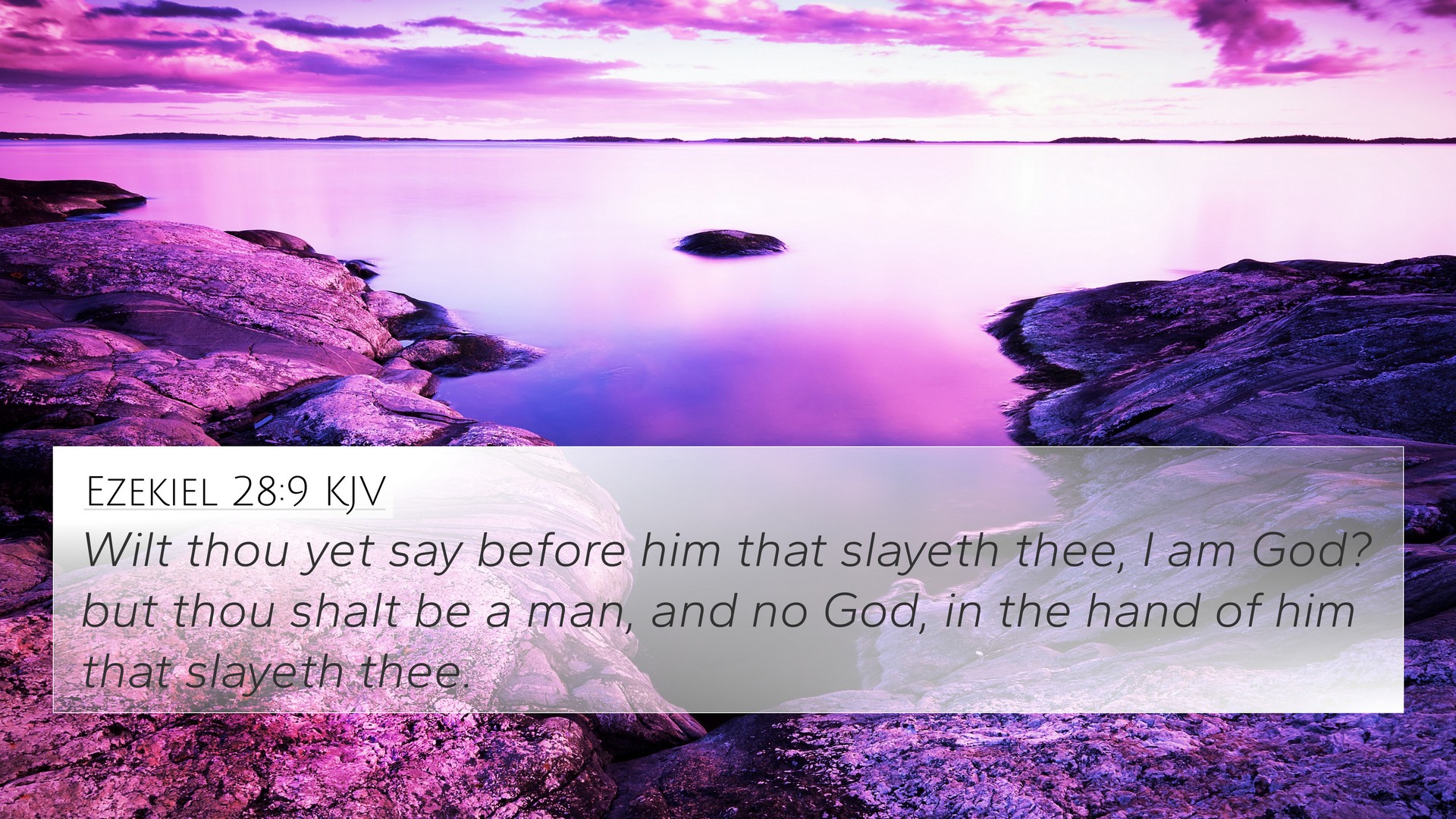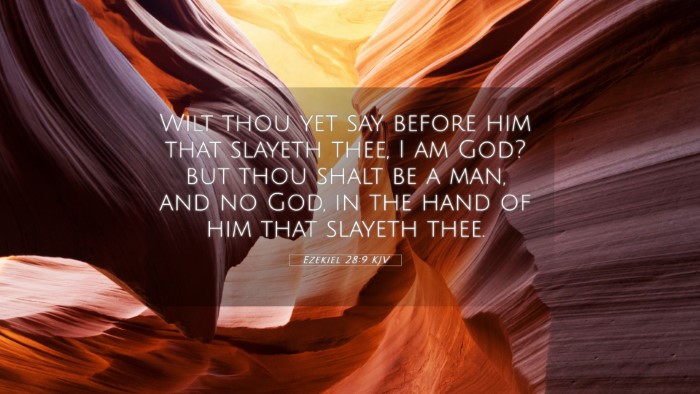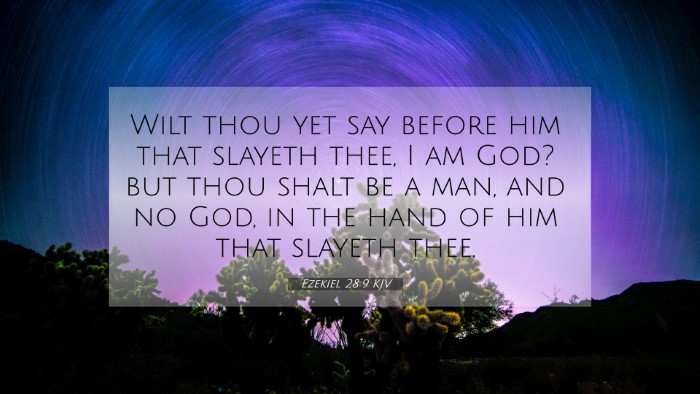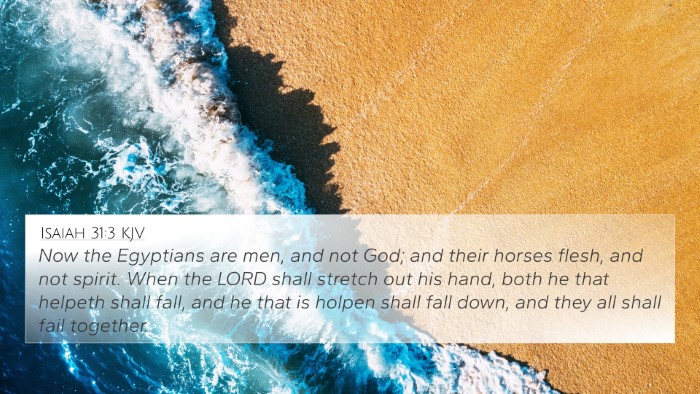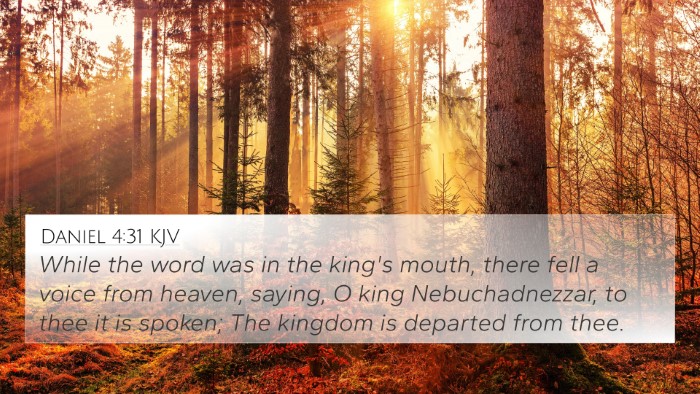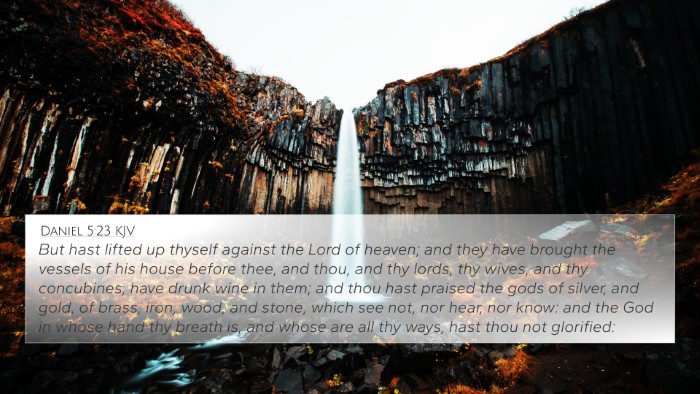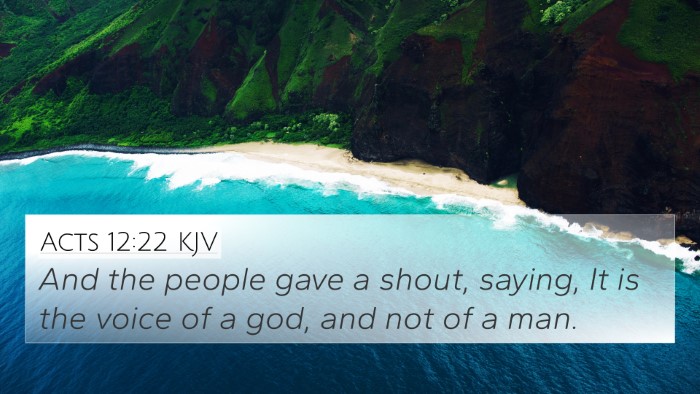Ezekiel 28:9 - Meaning and Interpretation
Ezekiel 28:9 states: "Will you still say before him who slays you, 'I am a god,' but you are a man and not a god, in the hand of him who slays you?" This verse confronts the pride and arrogance of the king of Tyre, illustrating how human pretensions of godhood are futile when faced with divine power.
Context and Historical Background
The book of Ezekiel is set during a time when Israel was in exile. The prophet Ezekiel spoke against various nations, including Tyre, representing corrupt power and pride. Here, metaphorically, the ruler of Tyre is depicted as exalted yet ultimately humbled by his mortality and the real God’s sovereignty.
Commentary Insights
-
Matthew Henry's Commentary
Henry emphasizes the folly of pretending to be a god when faced with the reality of God’s judgment. He notes that the king of Tyre's claim to divinity symbolizes the broader human tendency to elevate oneself above God, which will ultimately result in ruin.
-
Albert Barnes' Commentary
Barnes focuses on the contrast between human pride and divine authority. He interprets this verse as a warning against the arrogance of leadership that opposes God's will. The king's assertion of being 'a god' is depicted as a delusion overshadowed by the inevitable reality of human vulnerability.
-
Adam Clarke's Commentary
Clarke highlights that this verse presents a dramatic challenge to the false confidence of the king. He reminds readers that despite human capability, God holds ultimate power over life and death, rendering the claims of divinity meaningless.
Theological Significance
This verse presents a critical theological point regarding the nature of God versus the nature of man. It underscores the belief that humans, no matter how powerful, are subject to divine authority and accountability. The interplay of power, pride, and the truth of God’s supremacy resonates throughout scripture.
Cross-References
- Isaiah 14:13-14 - Discusses the fall of the proud, paralleling themes of arrogance and punishment.
- Daniel 4:30-32 - Features King Nebuchadnezzar’s pride and subsequent downfall, highlighting man's vulnerability.
- Romans 1:25 - Warns against exchanging the truth of God for a lie, relevant to claiming divinity.
- Psalm 82:6-7 - Explores the human condition of mortality versus divine status, echoing Ezekiel’s message.
- John 10:34-36 - References humanity’s claim to divine status, demonstrating the need for humility.
- Revelation 19:20 - Discusses the ultimate judgment of the false prophets, reinforcing divine authority.
- Proverbs 16:18 - "Pride goes before destruction," directly connected to the narrative of human arrogance.
Thematic Connections
This verse connects deeply with themes of humility, the danger of pride, and the recognition of God's sovereignty throughout the scriptures. The overarching narrative is consistent: God remains sovereign, and humanity, despite its achievements, is subject to divine control.
Using Cross-References for Deeper Study
Engaging in cross-referencing Biblical texts can enhance one’s understanding of themes present in Ezekiel 28:9. Methods for effective Bible study include:
- Bible Concordance: A useful tool to locate themes and scripture parallels.
- Bible Cross-reference Guide: Helps identify connections between various scriptures.
- Tools for Bible Cross-referencing: Utilize study apps and resources to find intricate links.
Conclusion
In essence, Ezekiel 28:9 serves as a powerful reminder of the limits of human pride. Through careful examination and comparative Bible verse analysis, we can uncover a tapestry of divine truths woven throughout scripture, guiding believers to a deeper understanding of God’s nature versus human impotence.
